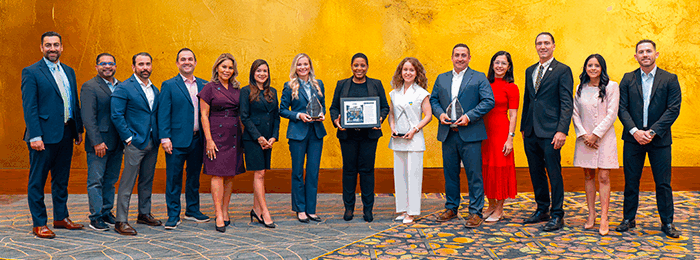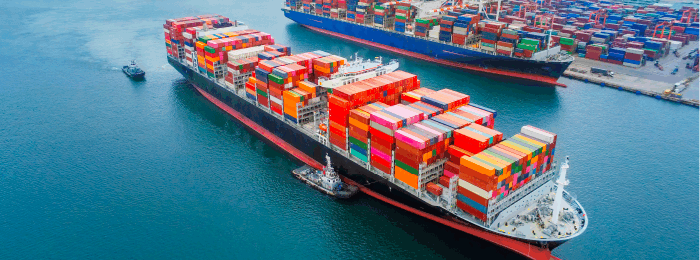Featured
Cooking quality money laundering: A recipe to aid AML professionals
Welcome to the underground kitchen of elite money laundering. In this world, success is not measured in Michelin stars, but in clean and pleasing money trails. The chefs in this kitchen must work with undesirable ingredients (dirty money) but their masterful skills create delectable dishes.
Digital wealth, physical harm: The rise of crypto kidnapping
During the past year, there has been a dramatic increase in physical violence toward individuals within the crypto industry or associated with crypto wealth. This new variant of kidnapping for ransom demonstrates the adaptation of criminals and organized crime groups to the digital age.
Europe’s dirty secret: Waste trafficking
Just a short drive from the tourist streets of Naples, Italy, the soil bears witness to an unnatural death toll. The towns of Acerra, Nola and Marigliano, once idyllic rural communities, have earned the grim epithet of “the Triangle of Death.”
From the Editor
Savoring the AML experience
I attended junior high school during the years when home economics was required to graduate from school. This is where I learned the scientific difference between baking and cooking. This is also where I discovered my love for baking and my dislike for snickerdoodles, but that is a story for another day. The main difference between following a recipe for baking and one for cooking is the exactness of executing the recipe.
Inside this Edition
- AFC Challenges
- AFC Policy
- Compliance
- Europe Express
- Fraud
- Global Financial Crime Review
- Interviews
- Know Your Chapter
- Meet the ACAMS Staff
- Member Spotlight
- Sanctions
Cooking quality money laundering: A recipe to aid AML professionals
Welcome to the underground kitchen of elite money laundering. In this world, success is not measured in Michelin stars, but in clean and pleasing money trails. The chefs in this kitchen must work with undesirable ingredients (dirty money) but their masterful skills create delectable dishes.
Unfolding peer-to-peer SARs
Amy (not her real name) became one of those too many somebodies in the now-too-common death tolls from overdoses. The only thing her family and friends are left to cling to is that this was accidental from a poorly and negligently mixed batch of fentanyl and not an intentional escape from a depressive bump in life.
Fentanyl: Tracing the deadly money trail
This article examines how illicit fentanyl trafficking has triggered a financial crime threat. It analyzes criminal finance networks, international cooperation and regulatory measures in the U.S. and Canada.
Fighting fentanyl: OFAC and FinCEN trends in financial services and beyond
On January 20, 2025, Inauguration Day, the Trump administration issued Executive Order 14157 promising to implement policies designed to achieve the “total elimination” of certain drug cartels and transnational criminal organizations’ presence in the U.S.
Enterprise risk management techniques to strengthen due diligence controls
Financial institutions are often exposed to various risks during the course of their operations. However, the risks arising from instances relating to financial crimes and anti-money laundering are the most detrimental.
The transparency imperative: The power of full disclosure in AML/CTF reviews
Independent anti-money laundering/counter-terrorist financing (AML/CTF) and sanctions reviews required under the Bank Secrecy Act are more than compliance exercises. Their strategic value lies in their capacity to reveal vulnerabilities, affirm control effectiveness and validate governance.
De-risking: A threat to financial inclusion?
Inclusion is a popular topic. The West has recently aimed at placing all members of society on an equal footing: minority groups, the elderly, the disabled, women, men and others. Inclusion is a movement steered at giving all human beings the same opportunities and removing―as far as possible―any discrimination or barrier to fulfillment.
Europe’s dirty secret: Waste trafficking
Just a short drive from the tourist streets of Naples, Italy, the soil bears witness to an unnatural death toll. The towns of Acerra, Nola and Marigliano, once idyllic rural communities, have earned the grim epithet of “the Triangle of Death.”
The evolving threat from within
A recent briefing, “The Threat from Within: A Growing Concern,” jointly published by ACAMS and Cifas, offered a framework for understanding the shifting landscape of risks posed by insiders operating within both public and private sector organizations.
Political donation fraud: A silent multi-million-dollar business
Simply put, fraud is an act of deceit and deception that is almost universally at the core of every economic crime scheme. It succeeds for many reasons. People can generally be good-natured and gullible. They can also be extremely emotional, greedy and naive, all of which leads them to fail to exercise some critical-thinking ability when solicited.
Ransomware as financial crime: Convergence of cybersecurity and compliance
Cybercrime, as defined in criminological literature, refers to unlawful acts where computing technology plays a central role. Within this domain, ransomware constitutes a form of malicious code that restricts access to data or systems until a ransom is paid.
Risks and romance: What the dating industry can learn from financial crimes compliance
In the financial services industry, money laundering, terrorist financing and sanctions regulations require financial institutions to implement governance frameworks for managing risks, accountability and public trust.
Digital wealth, physical harm: The rise of crypto kidnapping
During the past year, there has been a dramatic increase in physical violence toward individuals within the crypto industry or associated with crypto wealth. This new variant of kidnapping for ransom demonstrates the adaptation of criminals and organized crime groups to the digital age.
The exploitation gamble: Financial sextortion of minors
The headlines are horrifying. It seems every week another teenager has committed suicide as a result of financially motivated sextortion. The loss of life rightly captures the headlines, but the business model of blackmailing kids with explicit images can no longer escape the limelight.
Oksana Ihnatenko: Fighting financial crime in Ukraine
Oksana Ihnatenko, CAMS, is a managing director at the Center for Financial Integrity in Ukraine and a researcher for the Supervising and Monitoring Ukraine’s Reconstruction Funds project at the Centre for Finance and Security at the Royal United Services Institute.
Jessica Sunkamaneevongse: Successfully adapting to change
ACAMS Today sat down with Jessica Sunkamaneevongse, a fraud/anti-money laundering investigator and an international affairs enthusiast, with active top secret/sensitive compartmented information clearance. She is an accomplished federal leader with a decade of experience in leading cross-functional teams at the intersection of complex investigations, international relations and strategic planning.
ACAMS Mexico Chapter: New ACAMS chapter launched in Mexico
On June 25, 2025, members of Mexico’s anti-financial crime community attended the launch of the ACAMS Mexico Chapter―the most recent addition to ACAMS’ global network of more than 60 chapters.
ACAMS Cayman Islands Chapter: ACAMS’ newest chapter—The ACAMS Cayman Islands Chapter
October 2025 marks an exciting milestone for ACAMS with the addition of a new chapter in the Cayman Islands. As a world-leading jurisdiction for financial services and a country with one of the largest contingents of ACAMS members outside of the U.S. and Canada, it is only fitting that the Cayman Islands now hosts its very own ACAMS chapter.
ACAMS Pittsburgh Chapter: Amber Korowicki—Respect, honesty and passion
Amber Korowicki, CAMS, a financial crimes senior consultant at Crowe with extensive experience in financial industry compliance, recently spoke with the ACAMS Pittsburgh Chapter Board about her career and experiences in the anti-financial crime industry.
Clare Carr: Guiding ACAMS’ marketing strategy
ACAMS Today sat down with Clare Carr, vice president of marketing, leading the global marketing team at ACAMS. Prior to ACAMS, Carr worked in marketing at early-stage start-ups, most recently as the vice president of marketing at Chief, a leadership network for executive women.
Jane Bell, CAMS, CGSS—North Carolina, USA
Jane Bell joined SAS as an industry consultant in the Risk, Fraud and Compliance Solutions practice in 2023 after working in the banking industry for 20 years, including 15 years of direct experience in front-line anti-money laundering and fraud detection as a subject-matter expert in Bank Secrecy Act laws/regulations.
Jinisha Bhatt, CAMS—Ontario, Canada
Jinisha Bhatt is the founder of Canada Anti-Human Trafficking Consortium (CAHTC) and an anti-financial crime investigator positioned at the intersection of anti-money laundering and human trafficking.
Ilia Kolochenko, CAMS-FCI, CAMS-Audit, CAMS-RM—Genolier, Switzerland
Dr. Ilia Kolochenko is a Swiss cybersecurity and cybercrime investigations expert and a lawyer specialized in data protection and privacy law. He currently serves as CEO at ImmuniWeb, a global cybersecurity and compliance company serving over 1,000 enterprise customers from more than 50 countries. Kolochenko also teaches cybersecurity and cyber law as an adjunct professor in the U.S.
Getting serious about Syria
On May 23, 2025, the Office of Foreign Asset Control issued General License (GL) 25 permitting previously prohibited activity in Syria and with the new government of Syria. While some activities are now permissible, many activities remain prohibited. The press surrounding the issuance of the GL makes it sound like Syria is open for business.







